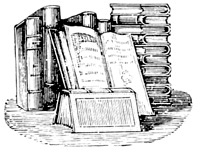
Walker Percy, the Episcopal Church & Kierkegaard’s “Apostle”
ON SPEAKING WITH AUTHORITY
Walker Percy and Søren Kierkegaard? Yes, of course. Percy and the Episcopal Church? Well, yes again. My argument here is twofold. On one hand, Percy, in his fiction, depicts the Episcopal Church — or, more exactly, some of its representatives — in order to advance both character and plot development and, not least, his satirical purposes. On the other hand, as a way of dramatizing Kierkegaard’s concept of “the Apostle,” Percy pits these folks against representatives of the Catholic Church, who are hardly beyond the barbs of satire themselves. This second part of the argument is the more vital. Kierkegaard’s idea, developed in his seminal essay “Of the Difference Between a Genius and an Apostle” (1847), powerfully influenced Percy’s presentation of character and theological insight in his fiction. (The essay was also arguably a factor in Percy’s conversion to Catholicism, as he himself suggested in a 1987 interview.) We find its firm imprint in Percy’s acclaimed novels The Last Gentleman and, even more significantly, The Second Coming.
What did Kierkegaard mean by an “Apostle” in contrast to a “genius”? We can see what he’s about from a representative quotation, to which Percy’s commentary on it may serve as gloss. Here’s Kierkegaard:
Genius is, as the word itself shows, immediateness…it is a natural qualification [emphasis added], genius is born. Even long before there can be any question as to how far genius is prepared to relate its particular gifts to God, it is genius, and it remains genius even if it does not do so…. In his first communication a genius may be paradoxical, but the more he comes to himself, the more completely will the paradox disappear.
Three key points may be gleaned from this quotation: (1) the gifts of the genius are natural and inborn; (2) the gifts may or may not be specifically related to God; and (3) the genius embodies an element of paradox, at least for a while. Kierkegaard continues, with his contrasting description of the Apostle:
It is otherwise with an Apostle…. An Apostle is not born; an Apostle is a man called and appointed by God, receiving a mission from him…. Apostolic calling is a paradoxical factor, which from first to last in his life stands paradoxically outside his personal identity with himself as the definite person he is…. As a result of this call he does not become more intelligent, does not receive more imagination, a greater acuteness of mind and so on.
In other words, though the Apostle may also have gifts — personal, intellectual — these do not set him apart. The decisive difference between the genius and the Apostle is the divine calling the latter receives, the appointment by God to a special mission. The genius does not have this; the Apostle does. Herein lies the paradox inherent in the latter’s vocation. St. Paul is an Apostle by virtue of his supernatural calling, quite apart from any intellectual gifts; Kierkegaard, by his own admission, is not an Apostle, though he may qualify as a genius by virtue of his intellectual gifts.
Percy expands on the concept, especially as it relates to his fiction. In a 1974 interview with Bradley R. Dewey, a Kierkegaard scholar, Percy said that for Kierkegaard “a genius is a man who arrives at the truth anywhere, anytime, anyplace, whereas an apostle has heard the news of something that has happened, and he has the authority to tell somebody who hasn’t heard the news what the news is.” Percy elaborated:
If the hearer of the news asks the apostle, “On what grounds am I supposed to believe this news?” the apostle simply replies that “I have the authority to tell it to you, and if you don’t believe me it is your fault. If I didn’t have the authority, I wouldn’t be telling you. You better believe it, and if you don’t believe it it’s on your own head.” That was a tremendous distinction, a very clear distinction between the two.
Percy goes on to acknowledge that he worked the concept into several of his novels in various ways. As is evident in those works, the authority of the Apostle is not to be confused with authoritarianism. The Apostle speaks his word; his listeners take it or leave it. He will not and cannot force them.
You May Also Enjoy
Belloc is a thinker and writer of enormous importance. Whether as an essayist, poet, historian, social critic, or novelist, what he wrote is always of interest.
The wealthy Anglican Churches promote a radical transformation of Christianity to make it over in a way agreeable to elite society.
For the original vampire slayers, most of them nominal Anglicans, the efficacy of Catholic sacramentals and the Sacrament quickly becomes apparent.

